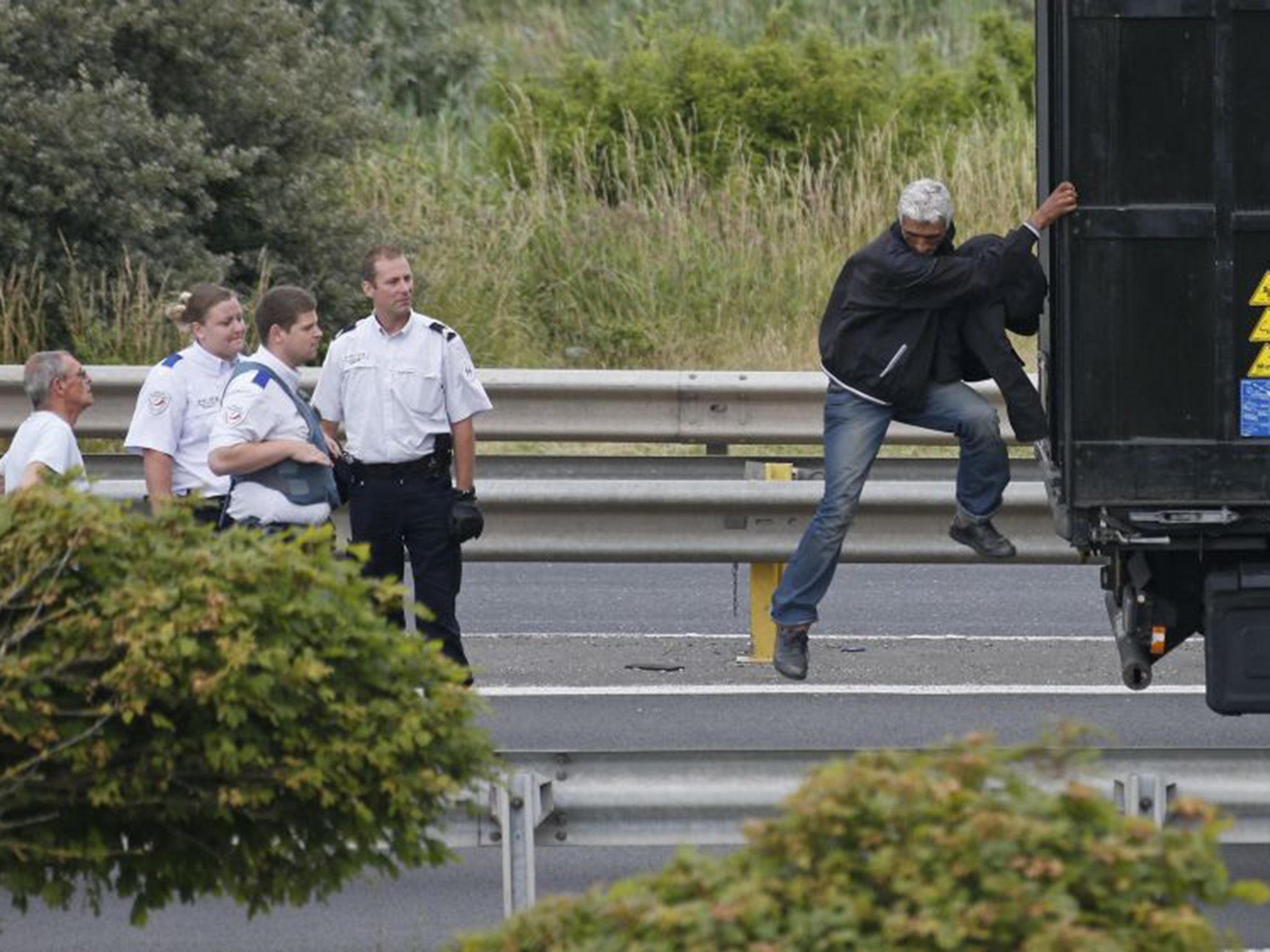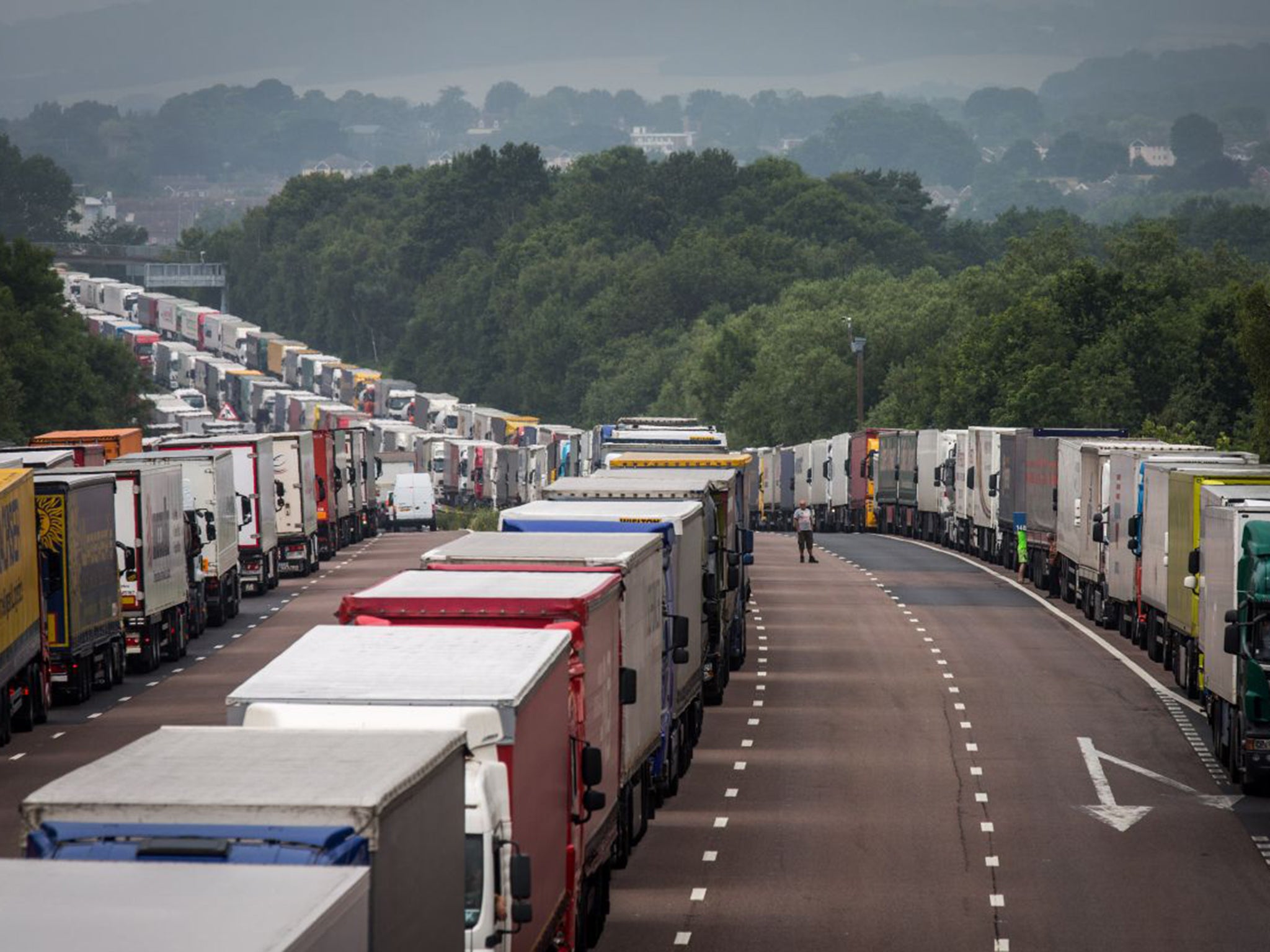Calais crisis: Breakthrough in strike talks allows some ferries to resume service
Tim Waggott, chief executive of the Port of Dover, said the strikes were costing the UK economy at least £250m a day

Huge queues of lorries on both sides of the English Channel begun to move after just over half the usual number of ferries started sailing between Dover and Calais.
Calais had been closed to most ferry traffic for four days because of a strike by French ferry workers – a situation that prompted the Government to hold an emergency Cobra meeting, putting a labour dispute on a par with terrorist attacks and foot-and-mouth disease as threats to the nation.
Tim Waggott, chief executive of the Port of Dover, warned that the disruption to services was costing the UK economy at least £250m a day.
However, following a meeting between French government ministers and union officials, there was a breakthrough that enabled Calais to open two berths for P&O vessels despite the industrial action by MyFerryLink staff over expected job cuts.

Queues of up to 7,000 lorries have built up in Kent, but P&O said it should be able to clear the backlog within two days. The Port of Dover said there were still no sailings to Calais by MyFerryLink and DFDS Seaways, the other main ferry operator. DFDS was however running services to Dunkirk.
The Cobra meeting was chaired by Oliver Letwin, the Minister for Government Policy. The Home Secretary, Theresa May, was in Paris to meet her French counterpart, Bernard Cazeneuve.
Ms May and Mr Cazeneuve issued a joint statement which said they had “emphasised the importance of a rapid resumption of maritime and rail traffic, which is indispensable to economic development on both sides of the Channel”.
The main point of the meeting was to discuss thousands of migrants who have been attempting to cross the Channel by hiding on lorries and other vehicles, a problem made worse by the traffic jam on the French side.
Ms May agreed that the UK would pay more money into a £10.6m fund designed to increase security at the Port of Calais.
“This will enable the installation of additional essential arrangements to prevent access to the port via the beach, but also to secure access to the Channel Tunnel, where incidents have taken place repeatedly over the past weeks,” they said.
A campaign “to inform migrants of the reality of Great Britain’s asylum and benefits system, to reduce the flow of migrants to Calais” will also be stepped up.
Dan Bridget, a spokesman for P&O Ferries, said its services would be operating normally on Friday with 25 round trips a day between Dover and Calais. “We’re delighted to be back to business as usual,” he said. “I think the numbers of lorries waiting in [Kent] has been oscillating between 3,000 and 7,000. In the worst-case scenario, it will take us two days to move that freight.”
Earlier Richard Burnett, chief executive of the Road Haulage Association, had said the situation was “absolute mayhem”.
Join our commenting forum
Join thought-provoking conversations, follow other Independent readers and see their replies
Comments
Bookmark popover
Removed from bookmarks